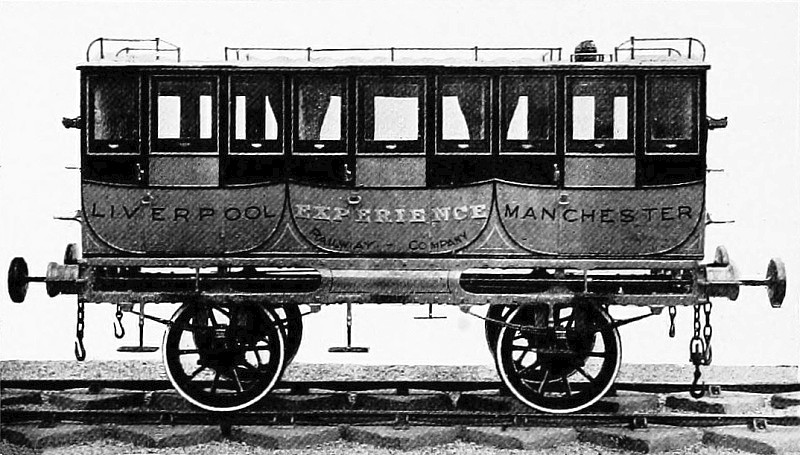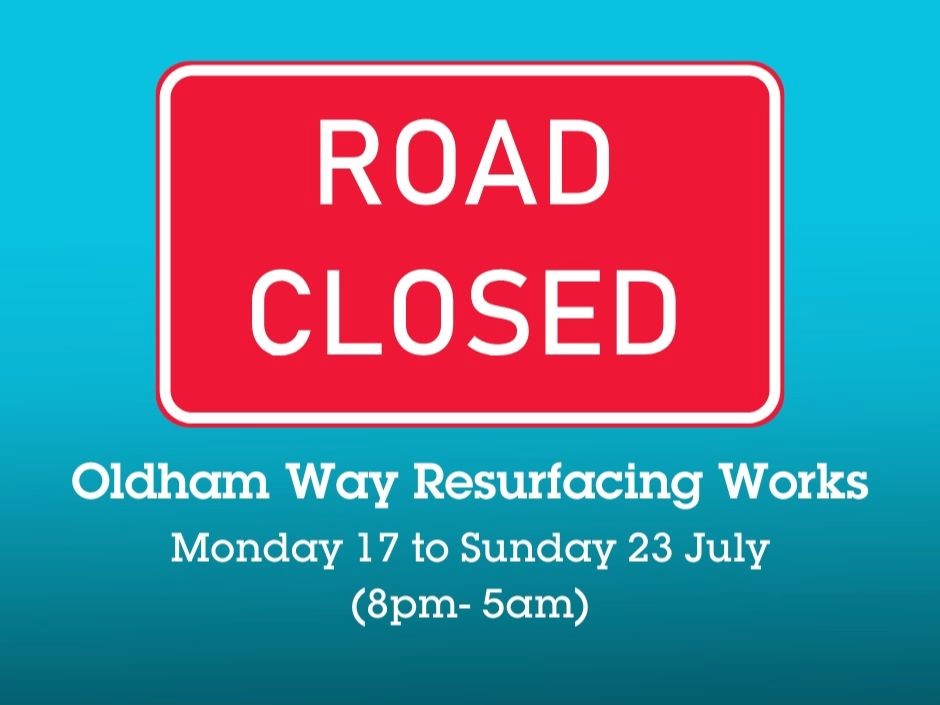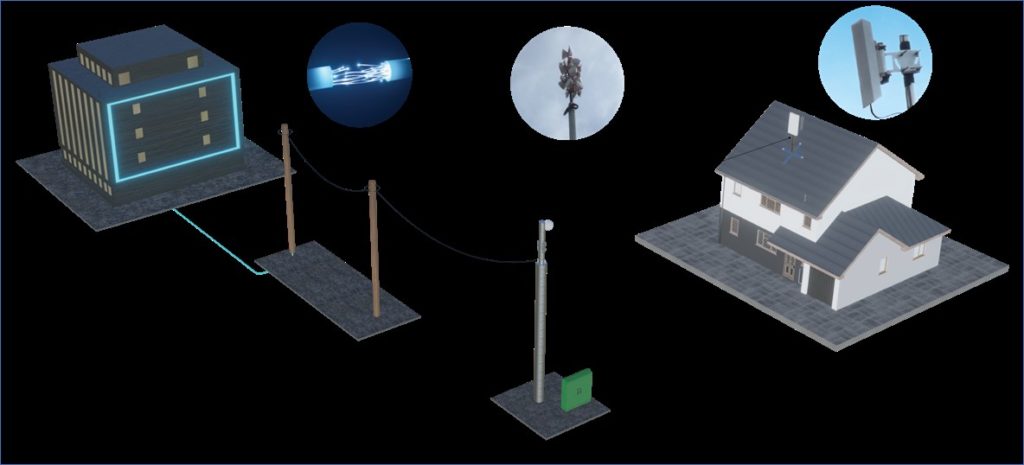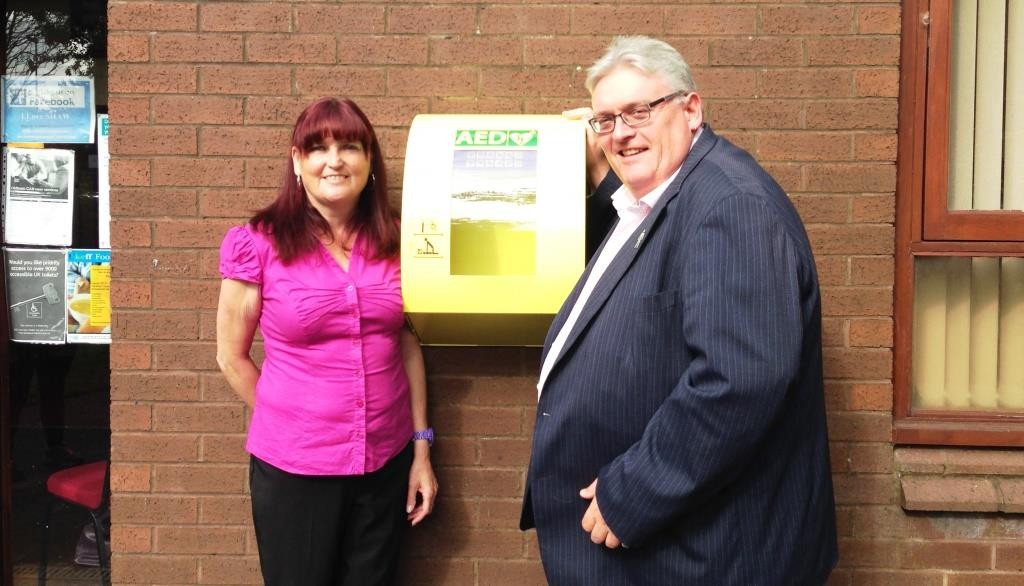
Rail ticket office closures

Rail ticket office closures
The rail industry and Government have announced proposals to close rail station ticket offices or reduce their operating hours.
The changes would come into effect over an 18-month period, following the conclusion of the consultation process on Wednesday 26 July.
Transport for Greater Manchester (TfGM) and Greater Manchester Combined Authority will be raising “significant concerns with the plans” through the formal consultation process, and are inviting local elected members to contribute.
In GM there are 58 ticket offices and in Oldham there is one, in Greenfield. These proposals would see 50 ticket offices closed – including Greenfield, which is operated by Northern – and eight remaining open, but with reduced operating hours.
To have your say on the proposals, please contact Transport Focus, the independent transport user watchdog, with your views and the name(s) of the stations.
You can email ticketoffice.Northern@transportfocus.org.uk or write to them at: Freepost: RTEH-XAGE-BYKZ, Transport Focus, PO Box 5594, Southend-on-Sea, SS1 9PZ
So they can incorporate it into their formal response, you are also invited to forward on any feedback to TfGM by email on engagement@tfgm.com
Everyone deserves a fair funeral

Everyone deserves a fair funeral
Oldham Council must change the way it delivers funeral services, say the local Liberal Democrat group, after a motion to improve funeral provision was rejected by the Labour Party.
Deputy leader of the Liberal Democrats Sam Al-Hamdani said: “This motion highlighted the unfairness and inequality that many people face when trying to organise a funeral – already one of the most traumatic times that people can face.
“As an example, only one of Oldham’s seven public cemeteries has available space allocated for Muslim graves; one of the faiths that requires people to be buried as soon as possible after death. That’s before you even consider the additional costs that are incurred by organising a funeral at short notice.”
The Liberal Democrat group tried to keep the motion alive by referring it to the Council’s scrutiny committees, which would also have allowed it to review the out-of-date asset transfer policy, as well as the council’s charges for funerals, and planning implications, which failed to be addressed by the original Conservative motion.
Cllr Al-Hamdani continued: “There are a whole range of issues that need to be properly talked through: the Council’s asset transfer policy which currently still requires people to apply to Unity Partnership even though it has been folded back in to the Council; opportunities to adopt the new technique of water cremation, which has environmental benefits; the charges that are in place for funerals and much more; none of which were explored in the motion to Council.
“This needs a proper report, and deserves proper attention to detail. Everyone, of all faiths and none, deserves dignity in death, and we owe it to everyone to look at this properly.”
Holiday activities programme launched for summer break

Holiday activities programme launched for summer break
Every family across Oldham can now book on to a range of exciting activities for free this summer.
All children and young people should be able to enjoy fantastic opportunities over the upcoming holidays, without it coming at a cost to parents.
More than 3,600 fun sessions will be available for families over the next six weeks, including everything from cinema screenings and theatre shows to swimming.
Many of the sessions are part of our Holiday Activities and Food programme and also offer a free hot meal, for eligible families. Find out more about the sessions, and how to book, here.
Oldham Way

Oldham Way will be closed for 1 week this month for resurfacing works.
The road will be closed in both directions from Monday 17 July to Sunday 23 July between 8pm and 5am.
The closures will be in place from Manchester Road roundabout to Prince Street. When the road reopens on July 24 there will also be a change to the road layout.
Westbound traffic on Oldham Way will crossover onto the eastbound side, between the onslip Road to Emmott Way, and return back onto the westbound carriageway after Waterloo Street.
For more information on this visit https://bit.ly/3pDOaBp
FREE pest control
RUSSIA AND NORTH KOREA WOULD BE PROUD

In a move that would make the leaders in North Korea and Russia proud, the so-called ‘Independents’, who are the controlling group, have kicked the Liberal Democrats off all committees on Shaw and Crompton Parish Council; something not even Oldham Labour would do.
Shocked Liberal Democrat Councillor Hazel Gloster said, “Democratically elected councillors have been prevented from doing the job they were elected to do.” Hazel added, “There will be no challenge, no scrutiny, no alternative suggestions or working together for the best interests of Shaw and Crompton.”
This is democracy in action by the so-called ‘Independents’.
IX Masts – Proposals for Electronic Communications Infrastructure

RE POSTED IN FULL FROM 9 JUNE
Proposals for Electronic Communications Infrastructure – Howard Sykes (mycouncillor.org.uk)
Briefing Note: Peter Richards, Head of Planning, Oldham Council
Many will already be aware of proposals by communications operators to install new infrastructure in Oldham that have emerged in recent months. In particular, one operator (IX Wireless) is proposing to roll-out a whole new set of infrastructure across much of the urban area of Oldham to support their Wireless Broadband service, and this has gained a great deal of attention from residents directly affected by the location of new infrastructure near to their homes. However, IX Wireless are not the only operator seeking to install new infrastructure.
I emailed all councillors on 22 March 2023 with an initial update on IX Wireless’ proposals and how we as a Council has to consider those proposals – see link below.
This briefing note necessarily focuses on IX Wireless’ proposals (as their proposals are extensive and attracting the most attention with residents) but please note that the technical planning, highways and communications guidance in this note applies to other operators as well.
What is Electronic Communications Infrastructure?
Electronic communications services (such as landlines, mobile phones and internet services) are now regarded as essential services. In order that these services can be provided where they are needed, The Electronic Communications Code (‘Code’) provides a statutory basis whereby communications providers (known in this context as ‘Operators’) can place their Apparatus on land or buildings owned by another person or organisation.
In view of the ever increasing and critical needs of local communities (and the UK economy as a whole) to have access to 21st century communications networks, such as high speed broadband connection or a 4G mobile connection (and 5G in due course), the Code has been reformed under the Digital Economy Act 2017 so as to make it more straightforward for Operators to gain access to the locations they need, to improve coverage, capability and capacity.
(paragraphs 1.1 and 1.2 of Ofcom’s Electronic Communications Code – Code of Practice, December 2017[1])
An Operator is an organisation which has been granted Code Powers by Ofcom, for example, a communications provider that is providing a landline, broadband, cable or mobile network, or a person who provides infrastructure which supports such a network. A list of those with Code Powers is maintained by Ofcom.
Electronic communications apparatus includes such items as antenna for mobile signals, masts, cabinets, cables, ducts and telegraph poles, and together they create the infrastructure which allows the technology to operate and provide a service to customers (residents and businesses). Apparatus such as the above is clearly already in place across Oldham, but the Electronic Communications Code (the Code) enables Operators to install additional apparatus, where needed, more easily to secure the improvements to electronic communications networks that are required.
Operators are required under the Code to consider if they can utilise existing apparatus where possible and reasonable to do so to provide their service, but there can be technical and practical reasons why an Operator might need to install their own, new apparatus, including to provide better and faster broadband services as demand for this continues to grow.
Another useful set of guidance to be aware of in relation to this is the Code of Practice for Wireless Network Development in England[2], most recently updated by the Department for Digital, Culture, Media & Sport in March 2022.
What are IX Wireless’ proposals?
IX Wireless are looking to roll-out a particular form of “wireless” broadband across Greater Manchester (having already done so in parts of Lancashire, including Blackburn and Blackpool) that will enable 6G connectivity and does not involve fibre to the premises as it relies on antenna and receivers.
At our request, IX Wireless have prepared a pack of information for Oldham councillors to explain more on what their proposals are, how their infrastructure works and what services they are looking to provide to Oldham. I attach that information to this briefing note at Annex 1, as it explains their approach better than I am able to.
In terms of the locations where IX Wireless are proposing to roll-out their infrastructure and services, the plans in the attached pack are indicative, but their proposals involve most of the urban area of the borough, from Failsworth in the south to Shaw in the north, and from Chadderton in the west to Springhead in the east. IX Wireless have notified us of the extent of the infrastructure network they propose to create, but the council is not able to share the detailed location of the apparatus and wider infrastructure network, as it must remain confidential for commercial and security reasons.
The vast majority of the apparatus involves telegraph poles (usually timber poles of 8-10m in height, though they can be larger and sometimes made of metal) and cables connecting from pole to pole. IX Wireless are proposing approximately 860 new telegraph poles across the borough. However, the particular form of wireless broadband service provision that IX Wireless provide also involves what they call a monopole or street pole, which is a larger metal pole (usually around 15m in height) that is capable of holding an antenna and usually has a cabinet at its base and is connected to nearby telegraph poles with cables. There will be far fewer of these monopoles (49), but they are potentially much more visually intrusive than a telegraph pole, depending on the location.
IX Wireless have also written to residents affected in the areas where they are rolling-out their infrastructure first. This initial roll-out is focused more on the telegraph poles. Their letters are addressed to “The Occupier” so there is a concern some residents may have overlooked these letters without opening them or reading them properly.
Is this happening just in Oldham?
IX Wireless are gradually rolling out their infrastructure across Greater Manchester, having already done so in parts of Lancashire. The Greater Manchester authorities and GMCA are liaising with one another and with operators (including IX Wireless). Officers from all the authorities have met jointly with IX Wireless to encourage them to communicate more effectively and to try and establish a consistency in approach across Greater Manchester in how we engage with them.
How does the Council get involved in, or influence, these proposals?
There are three main areas of legislation that the council need to have regard to in how they consider proposals for new communications infrastructure:
- Planning,
- Highways, and
- the Electronic Communications Code.
However, it must be stressed that the council actually has very little influence or control in all of these areas when it comes to proposals for communications infrastructure. As such, when responding to queries from residents about such proposals, it is important that councillors try to manage residents’ expectations of what the council can influence in the proposals and explain how limited the council is when it comes to such proposals.
Taking the three main areas in turn:
Planning
Virtually all of the new apparatus that a company like IX Wireless is looking to install falls under permitted development rights under the General Permitted Development Order (GPDO)[3] – nationally-set rights that allow certain forms of development in certain circumstances to be developed without needing to apply for planning permission. Operators know this, and they design and locate their apparatus to ensure it falls within these permitted development rights. There are typically two types of permitted development of relevance to communications apparatus.
For apparatus such as telegraph poles and their cables, the council as local planning authority has no control at all, and the operators can simply go ahead and install the infrastructure as long as they comply with the requirements set out for this type of permitted development in the GPDO.
For apparatus such as the larger monopoles and street poles, the council has advised IX Wireless (and other operators) that these constitute a “mast” under the GPDO, because they are specifically designed to accommodate an antenna. A “mast” is treated a little differently under the GPDO and requires an operator to seek what is known as “prior approval” for the mast.
Prior Approval is not a planning application, because the proposal is still permitted development, but the operator must submit their plans to the council as local planning authority for consideration before they can implement their plans. However, we can only consider the matters of “siting” and “visual appearance” in the context of the location, and so we can only really influence the proposals to ensure that the apparatus is located in a way that minimises the visual intrusion as much as possible. We cannot refuse the prior approval on grounds of the principle of the development or the need for the apparatus, as this has already been established as acceptable in principle under national planning legislation.
As IX Wireless prepare their plans for these larger monopoles and street poles, they are providing officers (in planning and highways) opportunity to feedback on their suggestions, allowing us to positively influence the location and siting of these poles before they submit for prior approval, and so minimise the impact as best we can. IX Wireless do not have to do this, so are working positively with officers in this way.
When the council do receive a prior approval application, we as local planning authority will notify the local community through a site notice displayed close to the site of the proposed mast and / or a letter to those properties directly adjacent to the site. The plans go on our website as well. Interested parties can submit comments on the plans for us to consider, but we can only take account of comments related to the matters of siting and visual appearance.
Given the above, under planning legislation, there is very little the council can do to influence or control the proposals of communications operators, but officers are working with IX Wireless to influence the proposals positively where we can.
Highways
Much of the apparatus that an operator might want to install needs to be located on adopted highway, usually within a pavement or a highway verge. As a result, an operator must apply to the council as highways authority for a permit to undertake works on the adopted highway. This process is merely to ensure that the actual works are to be done in a safe manner and will not affect highway or pedestrian safety, and that the surface of the adopted highway will be reinstated once the works are complete. The permit application is not an opportunity for the council to raise concerns about the principle of needing the apparatus or to question the suitability of the broad location for the apparatus.
As such, under highway legislation, there is also very little the council can do to influence or control the proposals of communications operators, except to ensure that the works they do undertake are done safely and to a suitable standard so as to ensure the adopted highway is still safe and functional.
The Electronic Communications Code
The Electronic Communications Code is found in Schedule 3A to the Communications Act 2003 and is supported by the Electronic Communications Code (Conditions and Restrictions) Regulations 2003. The Code is a set of rights that are designed to facilitate the installation and maintenance of electronic communications networks.
The Code confers rights on providers of such networks and on providers of systems of infrastructure (i.e., operators) to install and maintain apparatus on, under and over land and results in considerably simplified planning procedures. Ofcom are responsible for enforcing this legislation with operators. Ofcom’s website[4] provides some useful information in relation to the Code.
The Minister for Science, Innovation & Technology recently wrote to local planning authorities reminding them of the role that Ofcom play in enforcing the Code and encouraging local planning authorities to report any evidence of operators not complying with the Code (see letter included at Annex 2). However, to report an operator to Ofcom in this way, the council would need site-specific evidence to support any report of non-compliance and this can be difficult to evidence given how flexibly the Code and its Regulations can be interpreted.
The Regulations cover various matters which residents and councillors have raised with me in relation to IX Wireless’ proposals. The following table provides a quick summary of some of the main queries and what the regulations say about them.
| Query | What the Regulations say | Comments |
| Why are IX Wireless installing new poles and cables – shouldn’t they share existing apparatus already in place? | Regulation 3, para 4 states: “A code operator, where practicable, shall share the use of electronic communications apparatus.” Regulation 3, para 5 states: “A code operator shall install the minimum practicable number of items of electronic communications apparatus consistent with the intended provision of electronic communications services and allowing for an estimate of growth in demand for such services.” | The key phrase in regulation 3(4) here is “where practicable”. The regulation provides for the option of not sharing apparatus, if it is not practicable. Regulation 3(5) goes on to clarify that installing new apparatus should be kept to the minimum needed to provide the intended services and accounting for the growth in demand. Therefore, taking these two paragraphs together, the regulations do allow the provision of new infrastructure where it is not practicable to share, where it is needed to provide the intended services and to meet growing demand for those services. |
| Why can’t IX Wireless put their cables under the ground? | Regulation 4, para 1 states: “A code operator shall install all lines underground unless— (a) the line is flown from a pole in an area where service lines are already flown from poles; … (e) it is not in all the circumstances reasonably practicable to do so.” | Regulation 4 allows new lines of cable to flown from a pole in an area where this already happens, and this would cover many of the streets IX Wireless are proposing to install new poles and lines on. Even where this isn’t the case, if it is not practicable to put cable lines underground, the operator does not have to, according to Regulation 4(1)(e). Installing cables under the ground costs a great deal more, and so it would become a financial decision as to whether it is practicable to install cable lines underground, as the added cost may make the business model unsustainable for an operator. |
| Have IX Wireless notified the council of their intention to install new apparatus? If they have, why have the council not notified local residents and sought their input on the proposals? | Regulation 5, para 1 states: “A code operator must give one calendar month’s notice, in writing, to the planning authority for the area in question …” | IX Wireless have met this regulation, given that they notified us well in advance of their overall planned programme. This notification is not part of planning legislation, and it is just to notify the council as local planning authority where the operator intends to install apparatus under permitted development rights. As such, it is not an application, and the council cannot “refuse” permission for it, therefore there is no legal framework that allows us to in turn notify local residents or seek their input into the proposals, as the council are not making a decision to permit or refuse the proposals. |
| Have the Council provided any conditions that IX Wireless must adhere to when installing their apparatus? | Regulation 5, para 3 states: “Where a code operator has given notice under paragraph (1), the planning authority may, within one calendar month of the receipt of that notice, give the code operator written notice of conditions with which the planning authority wishes him to comply in respect of the installation of the apparatus, but he is not obliged to comply with those conditions to the extent that they are unreasonable in all the circumstances.” | The council can provide conditions to operators in the way described by regulation 5(3), but these must relate to “the installation of apparatus” – i.e., to how they install the apparatus, not where the apparatus is located or its visual appearance. As such, the council utilises the highway permit application process to guide the “how” of the installation, rather than providing a generic set of conditions across the entire proposed network when more specific requirements may be necessary on a site-by-site basis. |
Summary
Hopefully this briefing note has provided a helpful overview to you of the background to electronic communications infrastructure and provided more specific detail on IX Wireless’ proposals across the borough, that will aid you as you field queries from your constituents.
Ultimately, the council is very limited in what it can influence on such proposals, particularly in relation to planning legislation, and whilst the Electronic Communications Code does set some expectations for how operators should consider installing new apparatus, it is Ofcom who enforce that Code and we would require site-specific evidence that an operator has not complied with the regulations governing the Code in order to report them to Ofcom. At this time, we have seen no such evidence of how IX Wireless have not complied with the Code.
[1] https://www.ofcom.org.uk/__data/assets/pdf_file/0025/108790/ECC-Code-of-Practice.pdf
[2] https://assets.publishing.service.gov.uk/government/uploads/system/uploads/attachment_data/file/1057999/Code_of_practice_for_wireless_network_development_in_England.pdf
[3] The Town and Country Planning (General Permitted Development) (England) Order 2015 (as amended)
[4] https://www.ofcom.org.uk/phones-telecoms-and-internet/information-for-industry/policy/electronic-comm-code
Oldham Labour quietly vote down plans for improved front line services for the public

Oldham Labour quietly vote down plans for improved front line services for the public
Blink and you might have missed it, but at a meeting of Full Council this week (12/07), Oldham Labour Party voted down proposals aimed at improving essential frontline services like road repairs, parks and green spaces maintenance and prosecution of environmental crimes.
The plans, titled “Time for Oldham Council to start getting the basics right”, were tabled by the Liberal Democrat Group. But the ruling Labour Group took advantage of a chaotic meeting at Oldham Civic Centre, to quietly move the proposals to a vote without any debate.
Councillor Howard Sykes MBE, who leads the Liberal Democrats in Oldham, said, “What a complete disgrace for the people of Oldham Borough. People are fed up with the way Oldham Council routinely fails to deliver on the basics, like road maintenance, tackling fly-tipping and improving our parks and green spaces.”
“These are the things residents tell us are important. The Labour Party have become obsessed with failed and expensive vanity projects in Oldham Town Centre. They have let the wider Borough down. When presented with a plan that would help refocus council resources onto the priorities of our residents, their reaction is to quietly vote it down without discussion and hope no one notices.”
“Oldham Labour like to say that they run a ‘Listening Council.’ Well last night proved that to be utter nonsense.”
Full council 12/07/2023 – Notice of Opposition Motion Liberal Democrat Group
Time for Oldham to get the basics right
Proposed by: councillor Dave Murphy
Seconded by: councillor Hazel Gloster
This Council believes that:
Residents across Oldham Borough expect and deserve first class public services.
Residents feel that services such as schools, maintenance of roads, planning, park maintenance and drain clearance represent some of the most significant work that the council does because they affect the everyday lives of the people we represent.
When residents say they cannot rely on these services to be of consistent high quality, it undermines the trust that residents place in their council and their readiness to engage with services and that the Council should listen and take action.
Pride in service, strong communication, agility, resourcefulness and good interdepartmental cooperation are all essential values in delivering first class services across the board, and that these values must be set from the top down.
This Council notes that:
There is a growing trend of complacent underperformance that affects much of the council’s key service delivery and it needs addressing. This is keenly felt by our residents, who regularly tell us that they feel their council “does not get the basics right.”
Fly-tipping offences have spiralled out of control in Oldham, with the Borough seeing massive increases in offences when compared to other authorities across the North West.
Littering and dog-fouling offences continue unabated, with the council failing to issue Fixed Penalty Notices with any meaningful consistency or to come up with stronger solutions to tackle this ongoing issue.
Oldham’s schools are falling behind, with more than half now deemed as ‘needing improvement and it cannot continue.
This Council resolves to:
Move away from vanity projects that do not materialise and refocus its priorities; directing as much effort and attention into supporting basic frontline services as it has done into regeneration projects.
To take this motion to Overview and Scrutiny to see what can be done to improve the situation and provide a report to council on their findings.
FACTS: Shaw life Long Learning Centre

FACTS: The centre is NOT closing. Life Long learning classes are NOT transferring.
What is happening is that the running of the building is being transferred from Life Long Learning Service to Corporate Landlord. This brings it into line with other buildings and major landholdings belonging to Oldham Council.
Hopefully this should make easier for community use going forward. Life Long courses will continue to be delivered at the site. We now also have a much better chance of get some investment into the building.
I am interested in expanding both the Life Long learning courses as the centre and community use and would welcome any comments or feedback.
The full explanation is published in full below:
Dear Councillors,
It has been brought to my attention that there are concerns in relation to the delivery of the Lifelong Learning Service in Shaw and that activity is being redirected to Coldhurst Centre.
There is a clear rationale for the decision which has been taken which I have tried to present below but as with many things there are nuances and issues which need time to work through and would welcome feedback as to how we can make things better for Shaw residents.
Adult Education Budget Changes.
In 2018/19 the process of moving the Adult Education Budget from national Education and Skills Funding Agency remit to a devolved Greater Manchester Combined Authority managed scheme began. Over the subsequent five years there have been a number of changes to the grant funding agreement.
One such change has been how community learning is delivered and funded. Historically the service was required to deliver c. 50% of its activity through community learning programmes, these operated out of our own centres and in partnership with schools, children’s centres and with community groups and were aimed at engaging with adults onto “interest” based courses e.g. Spanish, yoga, woodwork.
Following devolution, this approach has changed radically and has led to a reduction in community facing provision and has changed to qualification based programmes e.g. Maths, English, ICT and ESOL.
Audit requirements
The service is very proud of its audit arrangements and has passed every audit with out any conditions which is rare following devolution. In order to retain this position and manage the risk to the Council, the service carries out reviews of provision to ensure that we are compliant with the annual funding rules. Following the changes to community learning provision, the service did a review of property and recognised that whilst 100% of activity in Werneth, Coldhurst and the Oldham Centre were 100% compliant there was a risk associated with Shaw.
The Shaw centre is seen a more than just a Lifelong Learning Centre and is recognised, as a community hub but to meet the auditable grant conditions the Service could only operate for adult education purposes. This has caused issues with regards to key events, for example, the Queen’s Jubilee celebration last year whereby the community wanted the centre open and in terms of wider use e.g. political surgeries. This is not acceptable in terms of the Adult Education Budget.
Proposal
In order to mitigate this, it was agreed that Lifelong Learning Service would transfer management of the Shaw Centre into the Council’s Corporate Landlord to manage. The Lifelong Learning Service will then lease back the space as and when courses are running at the centre. The Service is flexible but has to meet demanding delivery targets, so provision will continue at Shaw for as long as there is a need. The purpose of Lifelong Learning is to deliver English, Maths, ICT and ESOL provision to our residents and we work closely with Oldham College to support progression onto vocational provision.
Provision was planned in 22/23 at Shaw Lifelong Learning Centre that covered a range of subjects from Painting and Drawing to English and maths. The service will continue to provide adult learning opportunities at the centre during 2023/24 academic year. This will be a continuation of the programmes that have been delivered successfully and new programmes such as Multiply.
Transfer of services to Coldhurst
The suggestion that services are being transferred to Coldhurst or other areas is wrong. It is unclear where this idea has emerged from. The Shaw Centre caretaker has been asked to work in the Coldhurst centre following a colleagues retirement but this is just an internal move and bears no relevance to level of service provision.
The Service operates across Coldhurst, Shaw, Werneth and the main centre these space are only used for LLS provision and so retain a facilities management service. The service also works from some schools and is looking at how more provision in districts e.g family hubs but this is dependent on achieving minimum learner numbers to remain sustainable and retain efficiencies.
Conclusion
The transfer of Shaw centre management to the Corporate landlord has no effect on service delivery.
It does increase options for alternative uses. Historically the centre was a place for wider community celebrations and uses but the AEB funding agreement was limiting this. The Corporate Landlord will be seek to make best use of the asset and any significant changes will be communicated to Members.
The service reviews how it delivers its service and it continues to be one of the best performing adult education providers in the North West. We deliver directly to local residents and are keen to ensure that we remain relevant to local needs and would welcome a discussion with Members as to how we can promote the service to meet local needs for Shaw residents.
Kind regards
Jon Bloor Assistant Director – Economic Growth

